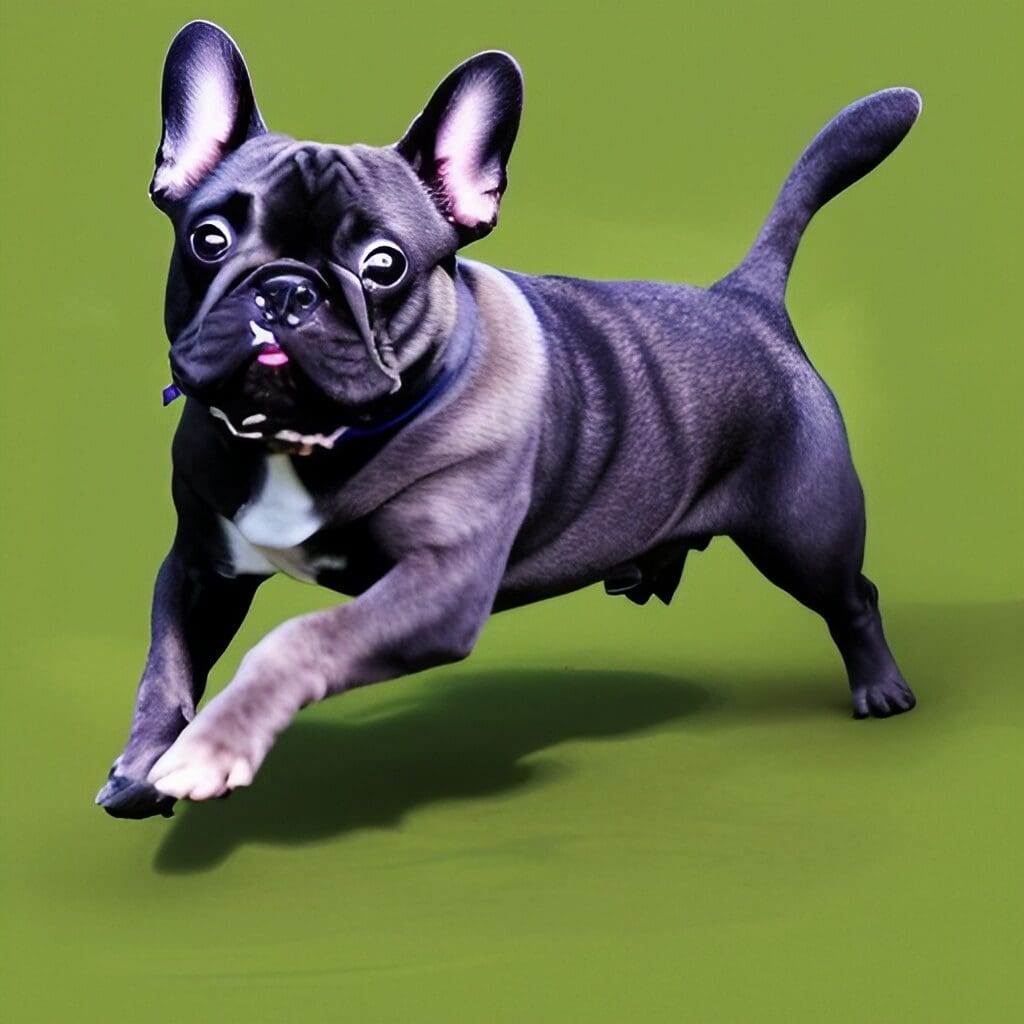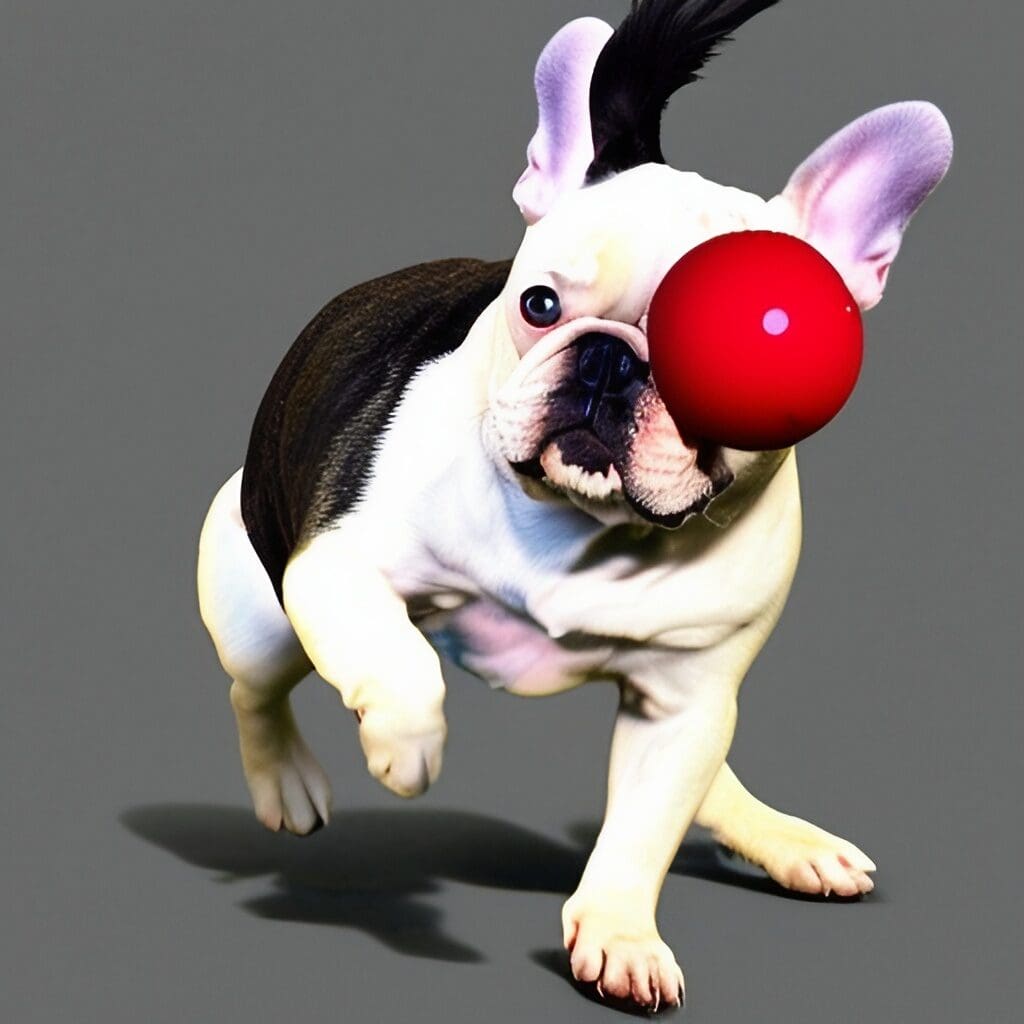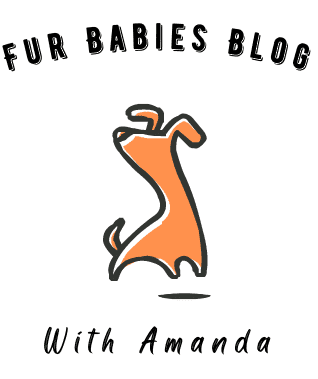Introduction to how to train a Frenchie not to bite!
French Bulldogs may be small, but they sure can bite! Each year, canine aggressive behavior causes thousands of injuries with French Bulldog bites being one of the most common.
For dog owners and trainers, understanding why these dogs exhibit such unwanted behaviors is essential in finding the best way to curb them. In this blog post, we’ll explore the main reasons why French Bulldogs bite and discuss some strategies for stopping aggressive behavior including positive reinforcement, desensitization, redirection, proper socialization and understanding what makes your pup tick.
Keep an eye out for signs of aggression such as growling and baring teeth so that you can intervene quickly and nip any potential issues in the bud! We’ll also introduce valuable tools like chew toys that can help prevent rough play from turning dangerous. So sit back and let’s explore why French Bulldogs bite and how to get them back on track with good behaviour next time.

Reasons French Bulldogs Bite
Separation anxiety, aggression, and fear are common reasons why French Bulldogs bite. Although Frenchie’s can be cuddly and playful, if they feel threatened or scared in any way, they can resort to biting as a form of self-defence.
The good news is that these behaviors can be managed with the right training methods. It's important to begin teaching your French Bulldog puppy bite inhibition early on, as this teaches them that biting is not an acceptable behavior. You should also be mindful of potential triggers like loud noises or strange environments which could cause your pup to become uneasy and lash out in fear.
Dog trainers have great success using positive reinforcement techniques when teaching adult dogs to stop aggressive behavior – rewarding good behaviour with treats is a good way to encourage desired responses. Separation anxiety can lead to a range of unwanted behaviors including aggressiveness and destructive chewing so providing plenty of chew toys when you’re not home is a good idea for keeping your dog preoccupied.
Proper socialisation is also key for preventing aggressive behavior in French Bulldogs, introducing them positively and gently to other people and pets from an early age will give them the confidence they need to feel secure in different situations. Understanding what makes them tick and being able to anticipate their reactions can make all the difference when it comes to stopping dangerous situations before they start.
Training Strategies
Taking the right steps to train a French Bulldog and prevent them from biting is essential for keeping your pup safe and your family members happy. Some of the common reasons why French Bulldogs bite are aggression, fear, and teething, but with the right strategies you can find solutions that work best for your pet.
Physical punishment should be avoided when it comes to training an adult Frenchie – this only reinforces bad behavior in dogs and won't achieve lasting results. Positive reinforcement techniques are more effective as they reward good behaviors with treats which encourages a dog to repeat those behaviors.

Teething is another common reason why French Bulldogs bite, so providing plenty of chew toys during this phase can help prevent any damage to furniture or other objects around the house! Bitter spray can also be used on furniture or shoes if necessary as it deters dogs from chewing without causing any pain.
For more serious cases of aggressive dog behaviour like excessive barking or lunging, seeking help from a professional trainer is a good idea as they have experience handling difficult dogs and will provide tailored advice based on your pup's specific situation.
And never forget that you should stop all activities when your dog begins displaying signs of aggression – it’s better to move away quickly than try to correct their behaviour at that moment.
By teaching your Frenchie early on how to behave properly in different situations, understanding their triggers and providing them with lots of love and attention, you’ll be able greatly reduce instances of bites everywhere! Good luck on your training journey!
Positive reinforcement
Positive reinforcement is an effective way to train any French Bulldog and stop bad habits such as biting. While it’s true that French Bulldogs can become aggressive, this behavior can be managed with the right training methods.
It’s important to start teaching your Frenchie bite inhibition from a young age, rewarding them when they respond positively to commands and licking their lips rather than biting. This teaches them that biting is not acceptable behavior and will help prevent instances of aggression in later life. As teething can also be a common cause of dog bites, providing plenty of chew toys during this phase can help redirect your pup’s attention away from furniture or other objects around the house!
Taking them to dog parks or stimulating environments can also provide your pup with ample opportunity for positive reinforcement as you reward good behaviors with treats or small toys. Exercise is also important when it comes to training an adult French Bulldog – daily walks, playtime and mental stimulation are key elements for maintaining their health and happiness; it’s important to tire out your pup before exposing them to stressful situations like crowded spaces or loud noises which may trigger episodes of anxiety.
Finally, don’t forget that consistency is key – if you want results you have to repeat the same techniques over and over again until they become ingrained in your Fur-baby’s mind! With patience and dedication, you should notice a significant difference in their behavior within weeks! Good luck!
Redirecting Aggressive Behavior
Redirecting aggressive behavior in adult French Bulldogs is essential for keeping your pup safe and healthy. While it’s true that French Bulldogs do tend to become aggressive at an earlier age than other dog breeds, there are steps you can take to help manage this behavior.

The first step is to understand why your pup may be exhibiting aggressive tendencies – some of the most common reasons include fear, stress, and health problems – if any of these sound like a good reason for your pup's behavior, then it’s worth arranging an appointment with your vet for further examination.
The next step is to start providing your pooch with plenty of mental stimulation and exercise; daily walks, playtime and active games help tire out dogs which reduces instances of aggression due to boredom or pent up energy. You should also start introducing them to different social situations early on in life – whether that’s through visits to the dog park or joining puppy classes – this will expose them to different people and dogs which can help build their confidence later in life.
Just make sure you move away quickly if you notice signs of aggression like barking or lunging! When it comes to redirecting aggressive behavior in adult French Bulldogs, positive reinforcement techniques are key – rewarding good behaviors with a small treat or toy encourages dogs as it teaches them what behaviours are best rewarded.
Providing plenty of chew toys during teething phase can also help as it redirects their attention from furniture or other objects around the house! With patience, dedication, and consistency you should find that your Frenchie’s behaviour improves over time! Good luck!
Establishing boundaries
Establishing boundaries with French Bulldogs is essential if you want to prevent them from developing any behavioural issues in the future. While these pups may not be naturally aggressive, they can still be prone to biting, especially if they’re around young children or unfamiliar dogs. It’s important to start teaching your pup bite inhibition from a young age, rewarding them when they respond positively to commands and licking their lips rather than biting.
This teaches them that biting is not acceptable behavior as it will help prevent instances of aggression in later life. You should also provide plenty of chew toys for your pup during teething phase as this will help redirect their attention away from furniture or other objects around the house! Daily walks, playtime and mental stimulation are key elements for maintaining their health and happiness; these activities also help tire out your pup before exposing them to stressful situations like crowded spaces or loud noises which may trigger episodes of fear or anxiety.

Finally, make sure to establish some rules within the home – if you want your French Bulldog to thrive and become well-behaved then setting firm boundaries is key – this means telling them off when they do something wrong and making sure they are aware of what is expected of them.
When it comes to establishing boundaries with adult Frenchie’s remember that consistency is key – repeat the same techniques over and over until they become ingrained in their minds! With patience and dedication, you should notice a significant difference in their behavior within weeks! Good luck!
The importance of consistency & Ignoring behaviors
When it comes to training adult French Bulldogs, the importance of consistency and Ignoring behaviors cannot be overstated. Without consistent rules and boundaries in place, these pups can quickly become unruly or develop aggressive behaviors.
It’s important to provide your pup with plenty of exercise and mental stimulation – daily walks, active games and regular playtime are a great way of tiring them out reducing incidents of aggression caused by pent up energy or boredom. You should also start introducing them to different social situations early on in life – whether that’s through visits to the dog park or by attending puppy classes – so they get used to being around people and other dogs which may help their confidence later in life.
If you do notice any signs of aggression like barking or lunging then it's important to move away quickly so that they don't associate these negative behaviors with good outcomes. When it comes to training your pup, the best way is to use consistent positive reinforcement techniques – rewarding good behavior with a small treat or toy teaches them what behaviours are best rewarded and encourages them as they learn new commands.
Ignoring bad behaviors is another great technique for training; this involves the owner refraining from providing any kind of attention towards their pup until they calm down before rewarding them for showing better behavior. With patience, dedication and consistency you should find that your pup’s behaviour improves over time! Good luck!

Understanding Your Dog’s Needs
When it comes to understanding your adult French Bulldog's needs, there are a few key elements that you should consider. Firstly, it’s important to provide your pup with plenty of mental stimulation and exercise – daily walks, active games and regular playtime are a great way of keeping them both physically and mentally healthy.
You should also start introducing them to different social situations early on in life – whether that’s through visits to the dog park or by attending puppy classes – so they get used to being around people and other dogs which may help their confidence later in life.
You should also have ways of providing positive reinforcement when they act appropriately – rewarding good behavior with a small treat or toy teaches them what behaviours are best rewarded and encourages them as they learn new commands.
At the same time, it's important to ignore bad behaviors – this involves the owner refraining from providing any kind of attention towards their pup until they calm down before rewarding them for showing better behavior.
Finally, pay attention to how your Frenchie interacts with other dogs and people; if you notice any signs of aggression like barking or lunging then it's important to move away quickly so that they don't associate these negative behaviors with good outcomes.
The United States Dog Bite Prevention Program recommends avoiding punishment entirely in favour of providing an alternative such as redirecting them towards something else like a chew toy. By meeting all your pup’s needs you can ensure that you raise a well-behaved pooch that will be happy and contented!
What triggers your dog’s behavior?
When it comes to your French Bulldog, understanding the triggers for their behavior is key to managing any potential issues. To start with, there are many factors that can contribute to behavioural issues in small dogs such as diet, exercise, socialization, and environment.
Ensuring that these basics needs are met is the foundation for a happy pup; providing them with plenty of mental stimulation and daily walks will help keep them both physically and mentally healthy. You should also be aware of any potential triggers; if your Frenchie has had a bad experience before then they may react differently when faced with similar situations again.
It’s important to pay attention to how they interact with other dogs and people around them so you can spot any signs of aggression like barking or lunging early on. The United States Dog Bite Prevention Program recommends avoiding punishment entirely in favour of providing an alternative such as redirecting them towards something else like a chew toy.

In addition, providing consistent positive reinforcement techniques is another great way of shaping their behavior – rewarding good behavior with a small treat or toy teaches them what behaviours are best rewarded and encourages them as they learn new commands. Ignoring bad behaviors is also an effective technique which involves refraining from providing any kind of attention until they calm down before rewarding them for showing better behavior.
By following these steps, you will be able to understand what triggers your pup’s behaviour and find ways of managing it!
Adequate exercise and mental stimulation
When it comes to French Bulldogs, providing adequate exercise and mental stimulation are essential elements of their care. Daily walks help keep them both physically and mentally healthy by providing an outlet for their curiosity and energy; this is especially important if they're living in small spaces such as apartments.
You should also introduce them to different social situations early on – whether that’s through visits to the dog park or puppy classes which may help your pup's confidence later in life. Consistent positive reinforcement techniques are another great way of shaping their behavior – rewarding good behavior with a small treat or toy teaches them what behaviours are best rewarded and encourages them as they learn new commands.
For example, dogs can quickly become bored if left alone for long periods throughout the day so finding ways to provide enrichment will help keep them occupied. Activities like hide-and-seek, chew toys and outdoor playtime can all be great sources of entertainment and encourages problem-solving skills.
It's also important to note that not all dogs respond positively to rewards and punishment – some may require professional guidance from an experienced trainer who understands how to properly guide both owners and their pets towards successful training outcomes.
Years of experience has shown us that efficient communication between owners, trainers and dogs leads to more harmonious relationships which support behavioural development over time – this is why proper training can make a huge difference when it comes to understanding our furry friends!
Properly Socializing Your Dog
Introducing your dog to people and other dogs.
Introducing your French Bulldog to new people and other dogs can be a daunting task, but one that is necessary for their development. It is important to start early and in controlled environments like the dog park – this allows them to become comfortable with people and other animals while being supervised by you.
Keep an eye out for any signs of aggression or anxiety such as barking, lunging or cowering which could be indications they are feeling overwhelmed or uncomfortable. Set the rules clearly; let everyone know that you want your pup to remain calm before introducing your pup – if they get too excited or start barking, take them away from the situation until they calm down before returning.
Make sure to reward good behavior with treats and toys at all times – this not only helps reinforce positive behaviour but also encourages socialization from their end.
It's also a good idea to bring along smaller items such as balls or toys that your pup enjoys playing with so they feel comfortable exploring new places; it’s best as well to slowly add more people or dogs into the mix over time once they have adjusted. With patient guidance, consistency and love your Frenchie can soon become a happy social butterfly!

Keeping interactions positive
Keeping interactions between your French Bulldog and other dogs or people positive is the best thing you can do for them. Whenever they come into contact with unfamiliar humans, make sure to give lots of praise and rewards – no matter how small – when they behave appropriately.
This will help them understand and learn what behaviors are acceptable in any given situation. It is also important to be aware that sometimes our furry friends can act up when feeling uncomfortable or overwhelmed so it's important to recognize signs of aggression such as growling, biting or barking in order to stop the interaction and ensure everyone stays safe.
If this happens, take a step back, analyse the situation mentally and if necessary, seek professional advice from an experienced trainer who understands how to properly support both owners and their pets in these situations. Finally, be sure that all socializing opportunities remain positive experiences for your pup; consistency is key so continue rewarding good behaviour using treats, toys and loving words which will encourage friendly behavior each time.
This will go a long way towards developing a better relationship between you both as well as garnering respect from others!
FAQs
How can I ensure my adult dog is comfortable and safe when meeting new people and dogs?
To ensure your pup feels comfortable and safe, start with smaller and more controlled environments like the dog park so they can become accustomed to people and other animals in a supervised setting.
Pay close attention to any signs of aggression or anxiety such as barking, lunging or cowering that could indicate they are feeling anxious or overwhelmed and take them away from the situation if necessary.
Reward good behavior with treats, toys, and loving words each time you introduce them to someone new.
What should I do if my Frenchie starts acting up when meeting new people?
What should I do if my Frenchie starts acting up when meeting new people?
If your pup starts to act up around unfamiliar humans, take a step back and analyse the situation mentally before intervening – calmly remove them from the area if needed.
Make sure to remain consistent with positive reinforcement for desired behaviors using treats, toys and compliments which will help them understand what is expected of them when in social situations.
If necessary, seek professional advice from an experienced trainer who can provide support for both owners and animals.
What are some good things I should do when
What are some good things I should do when introducing my French Bulldog to others?
When introducing your pup to others it's important to set clear rules so everyone knows what is expected of them – reward any calm behaviour with treats, toys or verbal praise as this reinforces what is acceptable in any given environment.
It's also a good idea to bring along familiar items such as balls or toys that they enjoy playing with so they feel more at ease during their interactions with strangers; start slowly by adding more people or dogs over time once they have become accustomed to their surroundings.
Are there any risks associated with French Bulldog biting? Answer
Yes, there are risks associated with a French Bulldog bite; it's important for owners to be aware of signs of aggression such as excessive barking, lunging, or growling which could be indications that something is making your pup uncomfortable or overwhelmed in their environment.
Taking measures quickly can help prevent further issues from arising further down the line. Professional advice from experienced trainers may be a good thing in some cases; ensuring consistency when rewarding positive behaviors using treats, toys and loving words will go a long way towards setting boundaries between you both as well as garnering respect from others!



